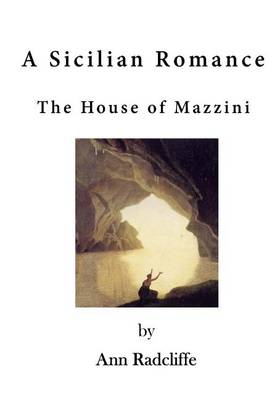
In "A Sicilian Romance" (1790) Radcliffe began to forge the unique mixture of the psychology of terror and poetic description that would make her an exemplar of the Gothic novel, and the idol of the Romantics. This early novel explores the cavernous landscapes and labyrinthine passages of Sicily's castles and covents to reveal the shameful secrets of its all-powerful aristocracy. Julia and Emilia Mazzini live secluded in an ancient mansion near the Straits of Messina. After their father's return to the island a neglected part of the house is haunted by a series of mysterious sights and sounds. The origin of these hauntings is only discovered after a series of breathless pursuits through dreamlike pastoral landscapes. When revelation finally comes, it forces the heroines to challenge the united forces of religious and patriarchal authority. This novel should be of interest to general readers, especially those interested in Gothic fiction and women's writing, and to students of English literature, 18th-century literature, Romanticism, and women's studies at 6th form, undergraduate and postgraduate level.
Ann Radcliffe is one of those authors who seems to count as "classic" in large part because her work is historically important and not necessarily because it "stands the test of time." She's best known for launching the genre of the Gothic novel with The Mysteries of Udolpho, in the eighteenth century but her work overall tends to be predictable and melodramatic. I like reading it partially because I like to laugh at it, which is certainly not the effect Radcliffe was going for. A Sicilian Romance was no exception.
The book has all the elements one might like in a Gothic novel: castles, ghosts, brigands, underground crypts, dashing lovers, duels. The problem is that all the elements that make Radcliffe's work recognizable also make it predictable. One can routinely guess what's going to happen in any given scene, or even what's going to happen 100 pages in the future. It ruins a lot of the supposed "suspense" and creepiness factor.
However, the story is so over-the-top that I kind of can't help but enjoy it, even when it's slow or eye roll-inducing. The ridiculousness and unlikeliness of it all is both familiar and entertaining. And, for this novel, Radcliffe got so ridiculous that I actually didn't see part of the end coming--though I probably should have.
I don't think Radcliffe is a master writer by any stretch of the imagination. Her distinction is largely that she did something first rather than that she did it well. However, I get enough enjoyment from reading her books that I will probably continue to pick up her work.
Reading updates
-
Started reading
-
Finished reading
-
24 January, 2018:
Reviewed
